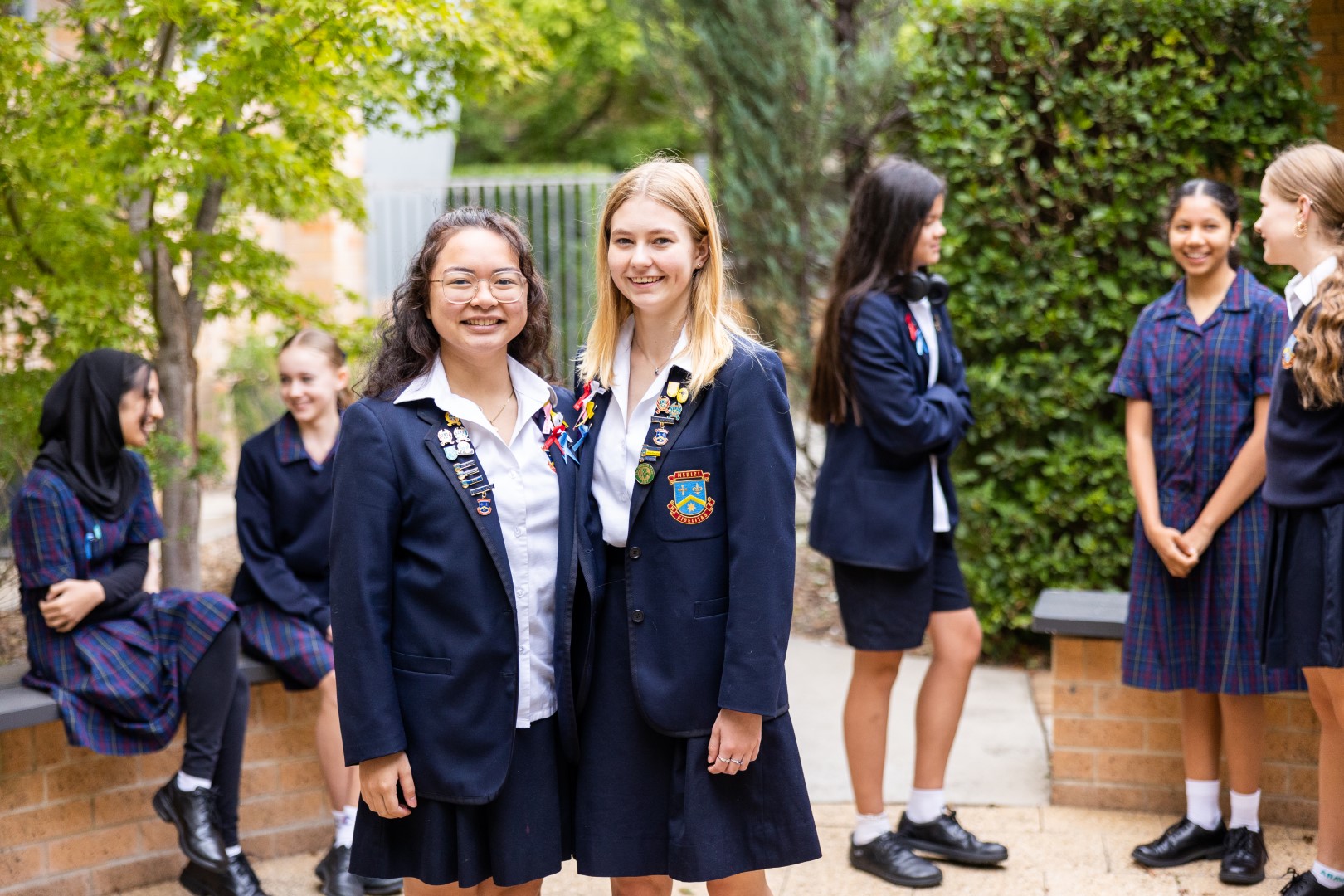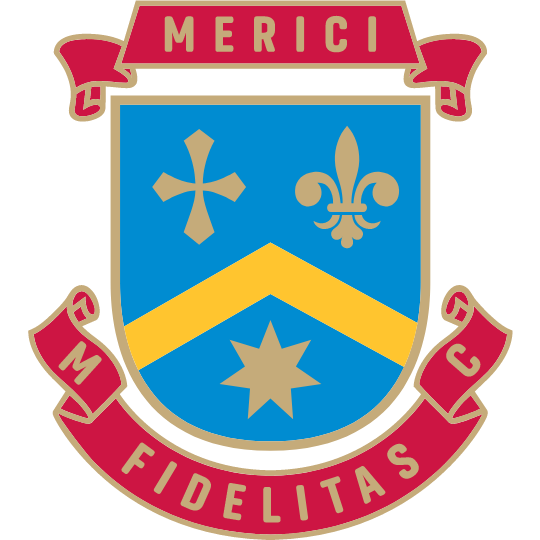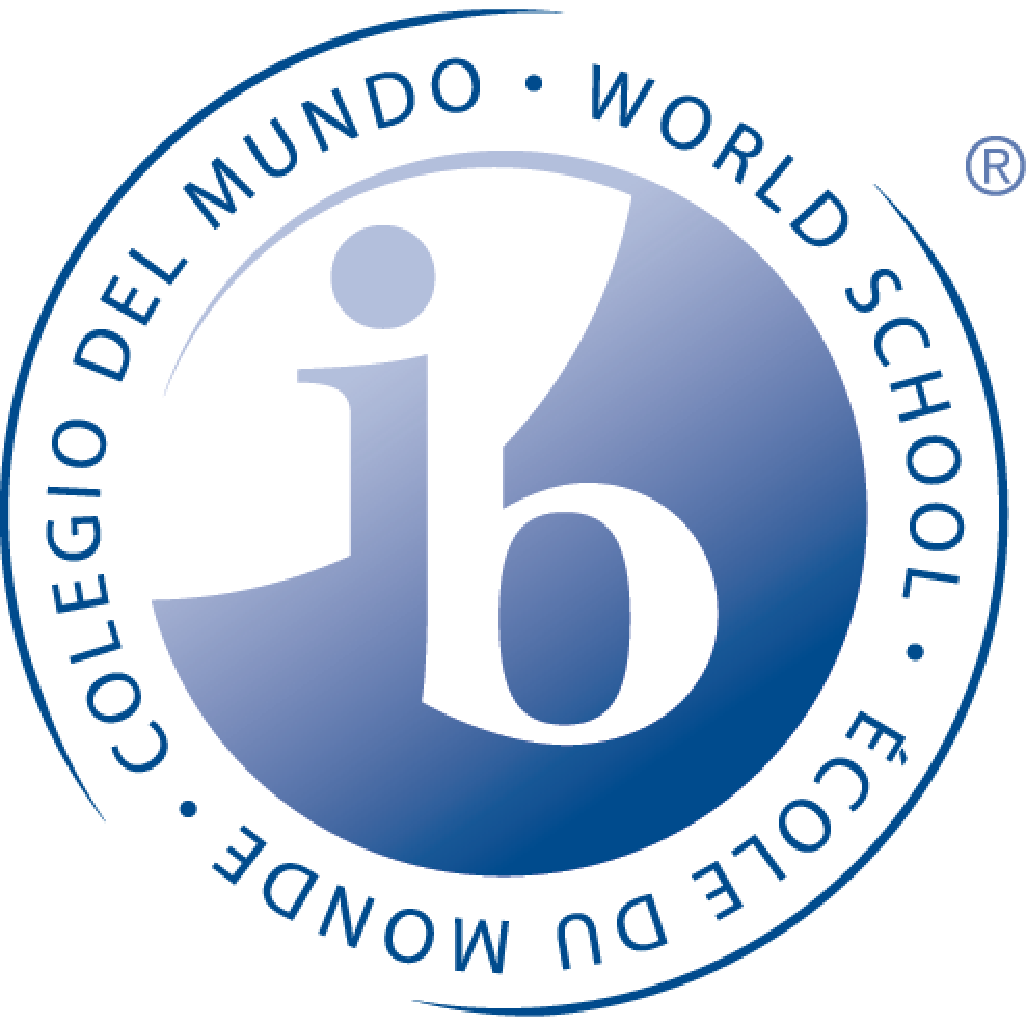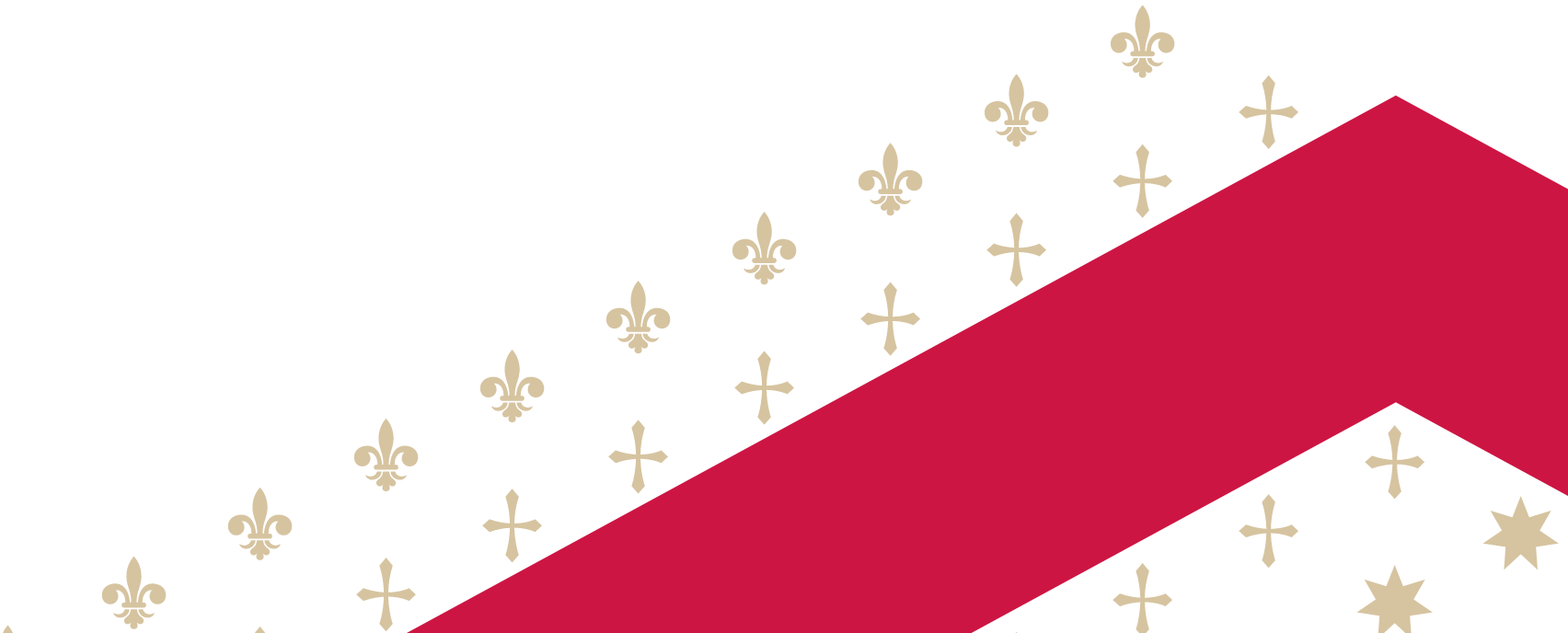Senior Pathways
Students at Merici College can choose to study courses accredited by the ACT Board of Senior Secondary Studies (BSSS) or the International Baccalaureate Diploma Programme. Both programs allow students to choose courses that are of interest to the students and provide direct entry into local, national and international universities.

What’s on offer for our students
Board of Senior Secondary Studies (BSSS)
Merici College offers a quality and wide range of courses that satisfy accreditation with the ACT Board of Senior Secondary Studies (BSSS). Students can select a combination of ‘Accredited’, ‘Tertiary Accredited’, ‘Vocational’, ‘Modified’, ‘University’ and ‘Registered’ courses that provide excellent preparation for further study at university, CIT, NSW TAFE colleges and business colleges, as well as direct employment after Year 12. Designated staff to assist students with their course choices are the Vocational Education and Careers Coordinator and the Deputy Principal Teaching and Learning.
Students at Merici College choose six subjects in Year 11 in order to gain a broad educational experience. Students must study English and Religious Education as two of their six subjects and the study of Mathematics is highly recommended. In Year 12, students who are in a completing a tertiary package may move to five subjects provided they have discussed this with Deputy Principal Teaching and Learning. Religious Education can be studied as a minor and completed in Year 11, while committing to 12 hours of community service during Year 12, and English is continued in Year 12 as a major.
As a Registered Training Organisation (RTO), Merici College also offers six Vocational courses (Textiles and Fashion, Hospitality, Business Administration, Media, Information Technology, and Sport Fitness and Administration). These courses contain industry-recognised national modules that articulate into many CIT and TAFE courses. Students have the opportunity to earn a Certificate II in these areas and gain preference in entry to CIT.
The College’s Senior and Course Outlines Handbook can be found here, https://www.merici.act.edu.au/my-merici/resources/school-handbooks and contains descriptions of each course together with important information regarding the senior college system in the ACT.
ANU College
Merici students have the opportunity to apply to the ANU College to study as part of their Year 12 Senior Secondary Certificate. Areas on offer as minors include Chemistry, Biodiverstiy, Specialist Mathematics, Physics, Indonesian, Chinese, Astrophysics, Creative Computing and Engineering.
Classes of two hours duration are held after normal school hours, at the ANU, on a Tuesday, Wednesday or Thursday. For further information see the Australian National University website http://www.anu.edu.au/secondarycollege/.
University of Canberra Accelerated Pathways
Merici students can also apply to UC to study on campus and earn credit towards a degree at the university. This unique opportunity provides the chance to experience what university study is like. Courses on offer include: Business studies, Information Technology, Anatomy, Psychology, Creative Writing and Politics.
Classes of two hours are held after normal school hours at UC. For further information, see the University of Canberra website: https://www.canberra.edu.au/campaign/accelerated-pathways-program
International Baccalaureate Diploma Programme
The IB DP is made up of the Core and six subject groups. The Core (made up of Theory of Knowledge, the Extended Essay and Creativity, Action and Service) aims to broaden students educational experience and challenge them to apply their knowledge and skills.
The six subject groups students choose courses within are: Language and Literature, Language Acquisition, Individuals and Society, Sciences, Mathematics and the Arts. Students may opt to study an additional sciences, individuals and societies, or languages course, instead of a course in the arts.
Students will take some subjects at higher level (HL) and some at standard level (SL). HL and SL courses differ in scope but are measured according to the same grade descriptors, with students expected to demonstrate a greater body of knowledge, understanding and skills at higher level.
Each student takes at least three (but not more than four) subjects at higher level, and the remaining at standard level.



